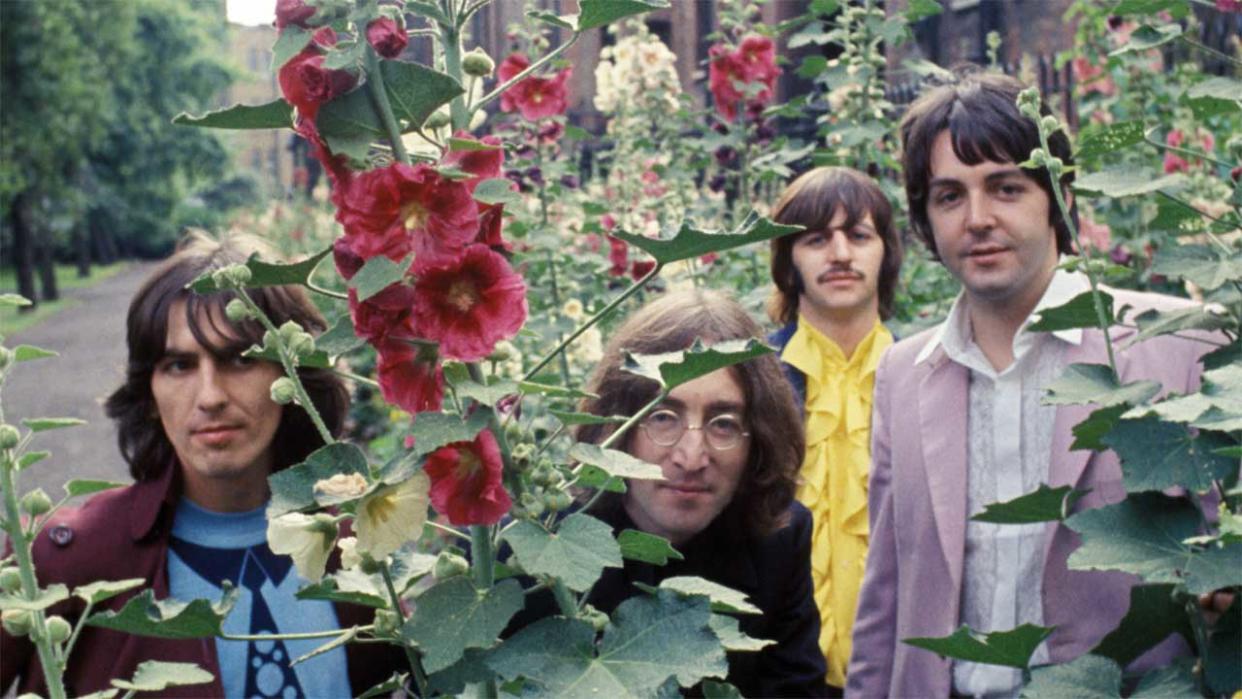"As unmistakable contemporary backing vocals from McCartney intertwine with Lennon, an involuntary emotional response is utterly inevitable." Classic Rock's Reviews Editor and biggest Beatles fan gives his verdict on Now And Then

- Oops!Something went wrong.Please try again later.
- Oops!Something went wrong.Please try again later.
- Oops!Something went wrong.Please try again later.
When it comes to big deals, the release of a new Beatles song is about as big as a deal can get. After all, not only are The Beatles the biggest selling artists in history (183 million units of certified sales and counting), they’ve also not favoured us with a brand new tune for 27 years. It’s also, we’re told - by no less an authority than Paul McCartney - ‘The Last Beatles Song’. And this is why we’ve been comprehensively teaser-ed to within an inch of our very lives over the course of the last few days in the run up to its release.
First there was ‘The Announcement’. Cue media meltdown. After all, The Rolling Stones may well have trademarked ‘The Greatest Rock ’N’ Roll Band In The World’ for themselves, but this…well, this is The Beatles.
Then ‘The Short Film’ which lathered up The Beatles’ faithful fan base no end with its pacily-edited, appetite-whetting clips of the Fabs in their heyday, the surviving ’95 Threatles sceptically stroking their chins over the potential of John Lennon’s raw, primitive, piano-masked, Yoko-sourced demo cassette, prior to an emotionally charged revelation of his beautifully fragile lead vocal (uncannily isolated by Get Back director Peter Jackson and his team).
Then there’s today’s McCartney and Ringo Starr properly enthusing over the project and, be still our beating hearts, even a blink-and-you-miss-it snippet of the finished product. The poignantly titled Now And Then. So, now that all the news outlets and hype merchants have thoroughly lubed us all up, comes the moment of truth, where the music has to finally speak for itself.
Headline! It starts, as all the best songs should, with a 1-2... Before the simple piano riff (familiar from the ‘short film’ and a billion dodgy clandestinely shared bootlegs of the Lennon home demo), now pin-sharp in its newly played by McCartney incarnation before the miraculously recovered Lennon vocal announces itself with “I know it’s true, it’s all because of you/And if I make it through it’s all because of you.”
It sounds an awful lot like a lyric being sung for Yoko, rather than for posterity, but it is classic Lennon. And as the song unfolds it’s clearly laced with a singular melancholia characteristic of Lennon’s solo work of the time. In its original demo form, accompanied only by heavy, halting piano chords, it bordered on the maudlin, but as its meticulously crafted (largely by McCartney) setting unfolds it surely gains an emotional weight that renders it more than worthy of its Beatles mantle.
Bridging toward its second verse Ringo enters the fray, subtly rim-shotting the down-tempo beat as the familiarly warm richness of McCartney’s Hofner violin bass lifts the mood.
As the chorus hits, Ringo - never a workmanlike four-to-the-floor beat-keeper - reacts with an adept flourish, Giles Martin-arranged strings (a signature Beatles move from Yesterday to Across The Universe) swell and as unmistakable contemporary backing vocals from McCartney intertwine with Lennon, an involuntary emotional response is utterly inevitable.
Following a second chorus, wherein the kitchen-sink’s worth of production never intrudes to the core composition’s detriment, comes McCartney’s slide guitar solo, inspired by George Harrison’s original ’95 sound sketches but played by Macca in George’s gloriously understated style. Always serving the song, never the ego, it’s an affecting, appropriate tribute to one of the least lauded of rock music’s enduringly influential guitar stylists, lost to cancer in 2001, that lifts the song into the stratosphere, before a soaring combo of strings, sensitive near-choral gang vocals lead into (with all due deference to the Ramones) a third verse, same as the first, before an all hands to the pumps coda that finally hits the buffers in an extremely Beatles, exceptionally ingenious style.
So should they have done it? Is it pushing the boundaries of what constitutes a Beatles record too far? Ultimately, The Beatles were always at the very forefront of audio technology; their forthright embrace of new sounds and state-of-the-art recording techniques that progressed pop toward rock is, in many ways, why we’re all here.
Would John Lennon have approved of the means by which his final Beatles-enhanced words to the world were finally delivered? One would hope so. For as Sean Ono Lennon would have it, he was “Never shy to experiment with audio technology”.
Whatever: Now And Then, the last Beatles song has finally arrived, and it’s more than worth the wait.

